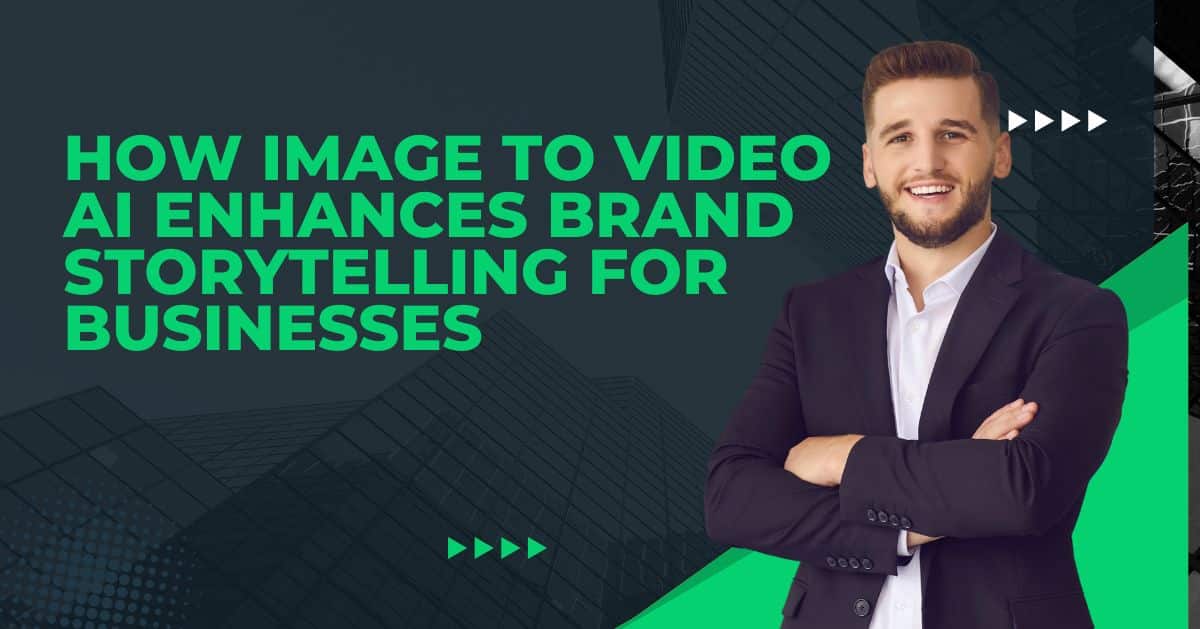In today’s digital world, brand storytelling has become a vital aspect of marketing strategies for businesses. It helps build emotional connections with audiences, drives engagement, and strengthens brand loyalty. However, the way stories are told has evolved, with visuals and videos becoming essential elements of modern storytelling. One innovative technology making waves in this area is image to video AI, which allows businesses to transform static images into engaging video content. This not only enhances the storytelling process but also makes it more dynamic and effective.
In this article, we’ll explore how an image-to-video AI tool is reshaping brand storytelling and why businesses should integrate this technology into their marketing strategies.
Why Brand Storytelling is Important for Businesses
Before diving into how AI enhances brand storytelling, it’s crucial to understand why storytelling matters for businesses. Effective storytelling:
- Creates emotional connections: It allows brands to connect with audiences on a personal level, conveying their mission, values, and vision in an impactful way.
- Boosts engagement: Stories told through visuals or videos capture attention better, making audiences more likely to interact with and remember the brand.
- Builds trust and loyalty: Consistent and authentic storytelling helps establish trust, making customers more loyal and engaged with the brand.
What is Image to Video AI?
Image to video AI is an artificial intelligence tool that converts static images into videos by using AI-driven techniques. It combines images, applies transitions, adds music or voiceovers, and creates a seamless video that tells a compelling story. This technology helps businesses generate videos quickly and efficiently, making storytelling more accessible.
How Image-to-Video AI Enhances Brand Storytelling
1. Transforms Static Images into Dynamic Content
– Static images can only convey limited information, whereas videos offer a more engaging experience by incorporating motion, sound, and visuals. With an image to video AI tool, businesses can convert simple product images, event photos, or brand visuals into dynamic video content that captures attention and keeps viewers engaged. For instance, a series of product images can be transformed into a product demo video, showcasing the features and benefits more effectively.
2. Makes Storytelling More Engaging
– Videos are inherently more captivating than still images, as they blend visuals with sound and motion. By using image to video AI, brands can add music, voiceovers, and animated text to their stories, making them more immersive. For example, a brand sharing its journey towards sustainability can use image-to-video AI to turn photos of eco-friendly practices into an engaging video that motivates viewers to support the cause.
3. Simplifies the Video Creation Process
– Traditional video creation can be time-consuming and resource-intensive. However, an AI video maker app simplifies the process, allowing brands to generate videos faster and more efficiently. By automating elements like transitions, text overlays, and music integration, AI tools reduce the manual workload, making it easier to produce frequent and high-quality video content. This enables businesses to maintain consistent storytelling, which is key to building brand recognition.
4. Adds Consistency to Brand Messaging
– Consistent branding is crucial for effective storytelling, as it reinforces the brand’s identity and values. With an image to video AI tool, businesses can ensure a cohesive look across all video content. AI tools allow for the integration of logos, brand colors, and fonts, helping maintain a consistent aesthetic. This uniformity not only improves brand recall but also enhances trust among the audience.
5. Facilitates Personalized Storytelling
– Personalization is a significant factor in successful brand storytelling. AI tools can create personalized videos by using customer data to tailor content. For example, a brand can use customer-generated photos to create personalized thank-you videos, making customers feel valued. By leveraging AI video maker app features, businesses can add customized messages, names, or offers, boosting customer engagement and satisfaction.
6. Enhances Social Media Engagement
– Social media platforms are crucial channels for brand storytelling, and videos typically perform better than static images in terms of engagement. An image to video AI tool can convert social media images into engaging videos, optimizing them for platforms like Instagram, TikTok, and Facebook. AI tools also offer features like automatic resizing and formatting, ensuring that videos fit perfectly on different platforms, maximizing visibility and interactions.
7. Increases Conversion Rates
– Videos are known to generate higher conversion rates compared to images or text alone. Businesses can use image to video AI to create persuasive videos that drive conversions, such as product showcases, customer testimonials, and explainer videos. By making videos more visually appealing and emotionally resonant, businesses can encourage viewers to take action, whether it’s making a purchase, signing up for a newsletter, or following a call to action.
Getting Started with Image to Video AI
If you’re considering using an image to video AI tool for your brand storytelling, here’s how to get started:
1. Select the Right AI Tool: Look for an AI video maker app that offers user-friendly features, customizable templates, and seamless image-to-video conversion.
2. Curate High-Quality Images: Use high-resolution images that represent your brand story well, ensuring they are visually appealing and relevant.
3. Add Engaging Elements: Incorporate music, voiceovers, and text overlays to make the video more compelling.
4. Optimize for Different Platforms: Adjust video formats and lengths to fit various social media platforms for maximum reach and engagement.
Conclusion
Image to video AI is revolutionizing brand storytelling by making it more engaging, consistent, and personalized. By transforming static images into dynamic video content, businesses can better connect with their audience, drive higher engagement, and enhance their overall marketing efforts. An AI video maker app simplifies this process, enabling businesses to create high-quality videos efficiently.
Integrating this technology into your storytelling strategy not only boosts brand visibility but also fosters stronger emotional connections with your audience, ultimately driving better business outcomes.
